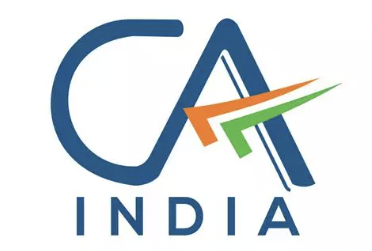Our Services
Due Diligence

Due Diligence
What is Due Diligence?
Due diligence is an investigation, audit, or review performed to confirm facts or details of a matter under consideration. In the financial world, due diligence requires an examination of financial records before entering into a proposed transaction with another party.
Why is it needed?
- Due diligence is a systematic way to analyze and mitigate risk from a business or investment decision.
- Due diligence involves examining a company’s numbers, comparing the numbers over time, and benchmarking them against competitors.
- After analyzing the debts and liabilities of the company, the buyer can confirm the possibility of getting involved in litigation in the near future. If the buyer learns properly about the debts and litigation, he can take the right steps in clearing the debts and liabilities.
- After analyzing the financial status, the buyer can make the correct decision based on the findings of the financial report. The buyer and the seller can also negotiate properly, which complies with the current position of the buyer.
Aspects covered in Due Diligence
- Investigation of Assets and Liabilities
- Analyzing Tax
- Profitability Review
- Review Accounting System
- Check the Legal & Financial Documents Review Accounting System
We take immense pride in announcing the successful completion of over five due diligence projects in the past year, a testament to the unwavering commitment, expertise, and diligence of our team at DVKS & Associates. This significant achievement reflects our dedication to delivering high-quality and comprehensive services to our clients.
FREQUENTLY ASKED QUESTIONS
Q.1. What is Due Diligence and why is it important in business transactions?
- Definition:
- Due Diligence is a comprehensive investigation or audit performed by a potential buyer, investor, or other stakeholders to evaluate the assets, liabilities, operations, and financial health of a target company.
- Importance:
- Identifies potential risks and liabilities that could affect the value of a transaction.
- Ensures that the transaction aligns with the buyer’s or investor’s expectations.
- Helps in ensuring regulatory compliance and prevents legal complications post-transaction.
- Improves decision-making by providing a detailed picture of the business’s financial and operational condition.
Q.2. What types of Due Diligence are performed?
- Financial Due Diligence:
- Evaluation of the financial health of the company, including income statements, balance sheets, cash flow statements, and debt obligations.
- Focus on identifying any financial irregularities, tax issues, or hidden liabilities.
- Tax Due Diligence:
- Review of the target company’s tax compliance, tax liabilities, and potential risks from tax audits or disputes.
- Identification of potential tax benefits or credits that could affect the transaction price.
- Legal Due Diligence:
- Review of contracts, intellectual property rights, pending litigation, employment agreements, and regulatory compliance issues.
- Ensures that there are no legal hurdles that could affect the transaction.
- Operational Due Diligence:
- Analysis of the company’s operational processes, including production, supply chain, and internal controls.
- Assessment of efficiency and any potential cost-saving opportunities.
- Commercial Due Diligence:
- Focus on the market and competitive landscape to evaluate the target’s position within its industry.
- Examination of customer relationships, market trends, and growth potential.
Q.3. What are the key steps involved in a Due Diligence process?
- Initial Planning:
- Define the scope of due diligence based on the nature of the transaction and risk factors.
- Identify key areas for review and assign experts to handle specific aspects like financial, legal, and tax analysis.
- Data Collection and Review:
- Collect necessary documents such as financial statements, tax returns, contracts, and operational data.
- Conduct interviews with key stakeholders to understand the company’s operations and any potential red flags.
- Analysis and Evaluation:
- Evaluate the data to identify any discrepancies, risks, or opportunities that could impact the transaction.
- Assess the company’s liabilities, contingent liabilities, and compliance status.
- Reporting:
- Provide a detailed report to the client that highlights key findings, risks, and opportunities.
- Make recommendations for adjustments to the transaction structure or price.
- Post-Due Diligence Follow-Up:
- Assist the client in negotiating changes to the transaction based on due diligence findings.
- Ensure all required legal, tax, and regulatory documentation is in place before the deal is closed.
Q.4. What are the common challenges faced during Due Diligence?
- Incomplete or Inaccurate Information:
- Lack of accurate financial data, incomplete records, or failure to disclose material facts can delay or derail due diligence.
- Legal and Regulatory Compliance Issues:
- Failure to comply with relevant legal and regulatory requirements may cause delays in the transaction.
- Cross-border transactions often face jurisdictional complexities, requiring additional legal expertise.
- Hidden Liabilities:
- Unforeseen liabilities, such as pending lawsuits, unpaid taxes, or regulatory fines, can create significant risks for buyers.
- Cultural and Operational Misalignments:
- Operational inefficiencies or cultural mismatches can arise post-transaction if these factors are not properly assessed during due diligence.
- Time Constraints:
- Time pressure to close the deal may lead to rushed due diligence, increasing the risk of overlooking critical issues.
Q.5. What role does a Chartered Accountant play in Due Diligence?
- Financial Analysis:
- Conduct detailed financial reviews, including the analysis of financial statements, working capital, debt obligations, and profitability.
- Identify potential financial risks and assist in valuing the business or assets.
- Tax Compliance and Strategy:
- Assess the target’s tax position, review past tax returns, and identify any hidden liabilities.
- Provide tax strategies to optimize the transaction structure .
- Risk Mitigation:
- Highlight key operational, financial, and legal risks that could impact the transaction and recommend steps to mitigate them.
- Deal Structuring:
- Advise on the most efficient way to structure the deal from both a financial and tax perspective.
- Report Preparation:
- Prepare a detailed due diligence report, summarizing findings, risk assessments, and recommendations.
